AA’s sister program Narcotics Anonymous (NA) follows the same framework, but is designed for those recovering from other substance use disorders. The first step is for a person to admit that they are powerless over alcohol, and that alcohol use has made their life unmanageable. Start writing down ideas of what you can do instead, broaden your horizons and think about what you want to do instead of drinking. This blog post on things to do instead of drinking will give you some ideas.
Prepare responses in advance to ease social pressure
For example, if AUD caused your life structure to crumble, staying in a sober living facility can help you deal with the fear of what comes next. If you have nagging or overwhelming fears, make sure to tell your AA group or counselor about them so rational plans of action can be implemented. You can call it fear if you want, but it’s actually a sign of progress. As you delve deeper into the program, you’ll begin to understand the root causes of your fears so you can assuage them.
Treatment Facilities
- To overcome this, you can practice acceptance and turn your worries over to your higher power or the collective wisdom of a higher counsel such as your sponsor or an AA or NA group.
- Feeling scared is normal when you’re making fear of being sober such a significant life change.
- A strong support network can provide encouragement and reduce feelings of isolation.
- A therapist who specializes in addiction and recovery can offer invaluable support.
This is part of our ongoing commitment to ensure FHE Health is trusted as a leader in mental health and addiction care. Most people will need ongoing support groups for some time after detox. This is a very good time to speak to your counseling team about these fears and the emotional struggles you are having. They can help you work through them and explain more about how you can recover more fully. When you are facing these challenges and downright fear of recovery, just focus on what is happening right now. Your true friends may have to take a short break from you if they are too addicted to drugs or alcohol.
This broader definition acknowledges that different people have different paths to recovery and that what works for one person may not work for another. Worrying about it constantly will only strengthen your fears and lessen your resolve to do anything. You will have good days, hopeless days, and every other sort of in-between day on this journey. Fear of being sober Realizing that sobriety means you’ll have to find new ways to handle your “stuff” is frightening. The idea that you don’t get to chemically check out of reality now and then is horrifying, especially when you think that reality is pretty terrible. Fears about sobriety are common, even for people who desperately seek it.
Recovery Support
Educate your family about your challenges and what you need from them so they know how to support you. Family therapy sessions can also be beneficial, helping to improve communication and resolve any underlying issues that may impact your sobriety. Support groups such as Alcoholics Anonymous, SMART Recovery, or other local sobriety support groups offer a community of people who are going through similar challenges. These groups provide a platform to share experiences, gain insights, and receive unconditional support. Regularly remind yourself of the positive changes that sobriety has brought to your life.
💙 Awaken your potential by exploring the world around you and developing interests outside of substances by Saying Yes to Life. Find a pace you are comfortable with, rather than racing from one event to the next to keep yourself busy. nifaliophobia To enjoy you sober mindset, you must find something you are passionate about, and pursue it, rather than finding things to distract yourself from the cravings. 💙 Those with addiction may benefit from our session on Working with Addiction from the Daily Calm.
San Diego Sober Living – Recovery
Celebrating these achievements can boost your morale and reinforce the value of your efforts toward sobriety. Start by identifying friends and family members who understand your journey to sobriety and are willing to help you through it. It’s important to choose people who are nonjudgmental and encouraging, rather than those who might inadvertently lead you back into old habits. Of course, on the surface, asking if there is such a thing as a fear of being sober might seem like a rhetorical question. Non-addicts may proclaim, “Of course addicts should want to get sober—why wouldn’t they? ” But the problem runs deeper than just simply being able to quit and stay sober.
If you have friends or family members who are sober, they can be a great source of support and information. Additionally, there are many different sober support groups that you can join. These groups can give you the support and encouragement needed to overcome your fears. If you’ve developed an identity tied closely to the drug scene, you might fear losing yourself outside that world. And it’s a reason you may be resisting the idea of going to rehab. However, discussion of this mindset shouldn’t be limited to its literal meaning.
